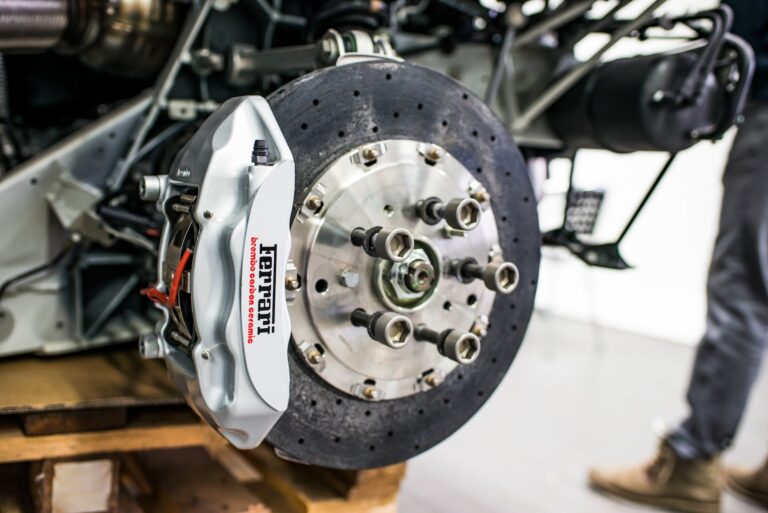Understanding the Importance of Oil Changes
Regular oil changes are crucial for maintaining the health and performance of your Jeep’s engine. Engine oil plays a vital role in the proper functioning of the engine, providing lubrication, reducing friction, and helping to cool down the components. By understanding the role of engine oil and the benefits of regular oil changes, you can ensure the longevity and optimal performance of your Jeep.
The Role of Engine Oil
Engine oil serves multiple functions within your Jeep’s engine. It acts as a lubricant, ensuring that the moving parts of the engine can operate smoothly without excessive friction. This lubrication helps to reduce wear and tear on the engine components, minimizing the risk of damage and prolonging the engine’s lifespan.
Additionally, engine oil helps to dissipate heat generated by the engine. As the oil circulates through the engine, it absorbs heat from the components and carries it away, preventing overheating. This heat transfer process is essential for maintaining the engine’s temperature within a safe operating range.
Benefits of Regular Oil Changes
Regular oil changes offer several benefits for your Jeep’s engine. By replacing the old, used oil with fresh oil, you can:
- Maintain Engine Performance: Over time, engine oil can become contaminated with dirt, debris, and other particles. This contamination can reduce the oil’s effectiveness in lubricating and protecting the engine. Regular oil changes ensure that the engine is always supplied with clean and high-quality oil, optimizing its performance.
- Improve Fuel Efficiency: Clean engine oil helps to reduce friction and minimize energy losses within the engine. This improved efficiency translates into better fuel economy, saving you money at the pump.
- Prevent Engine Damage: If the oil in your Jeep becomes dirty or contaminated, it can lose its lubricating properties and fail to adequately protect the engine. This can lead to increased friction, overheating, and potential engine damage. Regular oil changes help to prevent such issues and keep your engine running smoothly.
To determine the recommended oil change frequency for your Jeep, it’s essential to refer to the manufacturer’s guidelines. While general guidelines suggest changing the oil every 3,000 to 5,000 miles or every 3 to 6 months, this can vary depending on factors such as driving conditions, engine type, and oil type. For specific recommendations, consult your Jeep owner’s manual or reach out to a trusted dealership or service center.
By prioritizing regular oil changes and following the manufacturer’s recommendations, you can ensure that your Jeep’s engine remains in optimal condition, delivering the performance, reliability, and longevity you expect. Don’t overlook the importance of this simple yet crucial maintenance task that can significantly impact the overall health of your vehicle.
Signs that Your Jeep Needs an Oil Change
Regular oil changes are essential for maintaining the health and performance of your Jeep. By keeping an eye out for certain signs, you can determine when it’s time to schedule that much-needed oil change. Here are three key indicators that your Jeep is due for an oil change:
Low Oil Levels
One of the most obvious signs that your Jeep needs an oil change is low oil levels. If you notice that the oil level on the dipstick is below the recommended level, it’s time to top it up or schedule an oil change. Driving with insufficient oil can lead to increased friction and wear on engine components, potentially causing serious damage. To avoid any issues, it’s crucial to monitor your oil levels regularly and maintain them at the appropriate level.
Dirty or Contaminated Oil
Another telltale sign that your Jeep is in need of an oil change is the appearance of dark and dirty oil. Over time, engine oil accumulates contaminants, such as dirt, debris, and combustion byproducts. These impurities can compromise the lubricating properties of the oil and hinder its ability to protect the engine. If you notice that the oil on the dipstick is dark and dirty, it’s a clear indication that an oil change is necessary. Fresh, clean oil will help ensure optimal engine performance and longevity.
Engine Noises and Performance Issues
Unusual engine noises and performance issues can also signal the need for an oil change in your Jeep. If you hear knocking or ticking sounds coming from the engine, it may be an indication that the oil has become ineffective in lubricating the moving parts properly. Insufficient lubrication can lead to increased friction and wear, resulting in engine damage over time. Additionally, you may experience a decrease in overall performance, such as reduced power or sluggish acceleration. If you notice any of these symptoms, it’s crucial to address them promptly with an oil change to prevent further damage to your Jeep’s engine.
By paying attention to these signs, you can ensure that your Jeep receives the necessary oil change at the right time. Regular oil changes help maintain engine health, improve fuel efficiency, and extend the lifespan of your vehicle. To learn more about the importance of oil changes and to find reliable oil change services near you, check out our article on oil change services.
Recommended Oil Change Frequency for Jeeps
To keep your Jeep running smoothly and maintain optimal engine performance, it is important to adhere to the recommended oil change frequency. Regular oil changes help to prolong engine life, improve fuel efficiency, and ensure that your Jeep operates at its best. In this section, we will discuss general guidelines for oil change intervals, factors affecting oil change frequency, and specific recommendations for the Jeep 4xe.
General Guidelines for Oil Change Intervals
As a general rule of thumb, it is recommended to get an oil change for your Jeep every 3,000 to 5,000 miles or every 3 to 6 months, whichever comes first (Performance Honda Store). This guideline provides a good starting point for most Jeep models and ensures that the engine is properly lubricated.
However, it is important to note that the specific oil change interval may vary depending on factors such as driving conditions, type of oil used, and the specific model and engine type of your Jeep. Consider the following factors to determine the appropriate oil change frequency for your Jeep.
Factors Affecting Oil Change Frequency
Several factors can influence how frequently you should change the oil in your Jeep. These include:
- Driving Conditions: If you frequently engage in off-roading or towing, your Jeep may experience more strenuous conditions, leading to increased wear on the engine. In such cases, it may be necessary to shorten the oil change interval to ensure optimal engine protection and performance.
- Type of Oil: The type of oil you use in your Jeep can also impact the oil change frequency. Synthetic oils typically provide better protection and longevity compared to conventional oils. If you opt for synthetic oil, you may be able to extend the oil change interval.
- Manufacturer Recommendations: Always consult your Jeep’s owner’s manual for specific oil change recommendations from the manufacturer. They may provide more tailored guidance based on your Jeep’s model and engine specifications.
Jeep 4xe Specific Recommendations
For owners of the Jeep 4xe, it is advised to change the oil every 6,000 to 8,000 miles, depending on usage and driving conditions (4xe Forums). The Jeep 4xe is a hybrid model, and its unique powertrain may require slightly different maintenance intervals compared to traditional gasoline-powered Jeeps.
To ensure that you are following the correct oil change frequency for your Jeep, always refer to the specific recommendations provided by the manufacturer for your particular model and engine type. By adhering to these guidelines, you can keep your Jeep’s engine in excellent condition and enjoy reliable performance on and off the road.
Next, we will explore the importance of choosing the right oil for your Jeep, including the differences between synthetic blend and conventional oil, recommended oil brands, and the significance of using the correct oil filter.
Choosing the Right Oil for Your Jeep
When it comes to choosing the right oil for your Jeep, there are a few key factors to consider. The type of oil you use can have a significant impact on the performance and longevity of your engine. In this section, we will explore the differences between synthetic blend and conventional oil, recommended oil brands for Jeeps, and the importance of using the correct oil filter.
Synthetic Blend vs. Conventional Oil
For your Jeep, you have the option of using either synthetic blend or conventional oil. Synthetic blend oil offers a combination of synthetic and conventional base oils, providing improved performance and protection compared to conventional oil. It offers better resistance to breakdown under high temperatures and provides enhanced lubrication, especially during cold starts.
Conventional oil, on the other hand, is derived from crude oil and contains fewer additives compared to synthetic blend oil. While conventional oil can still provide adequate lubrication and protection for your engine, it may not offer the same level of performance and longevity as synthetic blend oil.
Ultimately, the choice between synthetic blend and conventional oil depends on various factors such as the age of your Jeep, your driving habits, and the manufacturer’s recommendations. It’s always best to consult your owner’s manual or reach out to a trusted mechanic to determine which type of oil is most suitable for your specific Jeep model.
Recommended Oil Brands for Jeeps
When it comes to choosing the right oil brand for your Jeep, there are several reputable options available. Some recommended oil brands for Jeeps include Pennzoil Platinum and Mobil 1 High Mileage. These brands offer synthetic blend oils that meet the specifications and requirements of your Jeep’s engine. Be sure to check the owner’s manual or consult with a professional to ensure you choose an oil brand that is compatible with your Jeep model.
Importance of Using the Correct Oil Filter
In addition to selecting the right type of oil, it is equally important to use the correct oil filter for your Jeep. The oil filter plays a crucial role in removing contaminants from the oil, ensuring that clean oil circulates through your engine. Using the correct oil filter is essential for proper filtration and performance.
For Jeep 4xe engines, it is recommended to use an oil filter that meets the specifications of the vehicle, such as the Mopar oil filter. Using an oil filter that is specifically designed for your Jeep model helps to maintain optimal filtration efficiency and ensures that your engine receives clean oil during each oil change. Be sure to consult your owner’s manual or seek guidance from a qualified mechanic to determine the correct oil filter for your Jeep.
By selecting the right type of oil, using a reputable oil brand, and using the correct oil filter, you can ensure that your Jeep’s engine receives the proper lubrication and protection it needs. Following manufacturer recommendations and regular maintenance practices, such as regular oil changes, will help keep your Jeep running smoothly and efficiently. For more information on oil change services and finding the best oil change providers, visit our article on oil change services.
The Consequences of Neglecting Oil Changes
Regular oil changes are vital for the health and performance of your Jeep. Neglecting to change the oil can have several consequences that can impact both the engine and overall longevity of your vehicle.
Engine Damage and Reduced Fuel Efficiency
One of the primary consequences of neglecting oil changes in your Jeep is the potential for engine damage and reduced fuel efficiency. Over time, engine oil breaks down and becomes contaminated with dirt, debris, and other particles. This can result in the formation of sludge, which can clog the engine components and hinder proper lubrication.
Without proper lubrication, the moving parts of the engine can experience increased friction and heat. This can lead to premature wear and tear on the engine components, such as the pistons, cylinders, and bearings. Eventually, this can result in engine damage, decreased performance, and even engine failure.
Additionally, when the engine is not adequately lubricated, it has to work harder to overcome the increased friction. This can lead to decreased fuel efficiency, as the engine needs to burn more fuel to compensate for the lack of lubrication. Regular oil changes help ensure that the engine remains properly lubricated, reducing the risk of damage and improving fuel efficiency.
Impact on Warranty and Longevity
Neglecting oil changes can also have consequences on your Jeep’s warranty and longevity. Many vehicle manufacturers require regular oil changes as part of their maintenance schedule to uphold the warranty. Failure to adhere to these oil change intervals may void the warranty coverage, leaving you responsible for any repairs or replacements.
Moreover, regular oil changes contribute to the overall longevity of your Jeep. Fresh oil helps to reduce friction, remove contaminants, and maintain proper engine temperature. By adhering to the recommended oil change frequency, you can ensure that your Jeep’s engine stays in optimal condition for an extended period.
Off-Roading and Towing Considerations
If you frequently engage in off-roading or towing activities with your Jeep, it’s essential to consider the additional strain these activities place on your engine. Off-roading often exposes the engine to harsher conditions, such as dust, dirt, and extreme temperatures. Similarly, towing puts extra stress on the engine, increasing the demands on the oil.
As a result, frequent off-roading or towing may necessitate more frequent oil changes for your Jeep. It’s crucial to consult your owner’s manual or reach out to a trusted mechanic to determine the appropriate oil change intervals based on your specific driving habits and usage.
By understanding the consequences of neglecting oil changes, you can appreciate the importance of regular maintenance for your Jeep. Engine damage, reduced fuel efficiency, warranty implications, and considerations for specialized activities like off-roading and towing highlight the significance of staying on top of your oil change schedule. Make sure to follow the manufacturer’s recommendations and consult with professionals for guidance to keep your Jeep running smoothly for years to come.
Best Practices for Oil Changes
When it comes to keeping your Jeep running smoothly, following best practices for oil changes is essential. By adhering to manufacturer recommendations, prioritizing regular maintenance, and finding a reliable oil change service, you can ensure the longevity and optimal performance of your vehicle.
Following Manufacturer Recommendations
To maintain your Jeep’s warranty and keep your engine in top condition, it’s crucial to follow the manufacturer’s recommended oil change interval. Each Jeep model may have specific guidelines, so referring to your owner’s manual or consulting with a certified technician is advisable (DARCARS Chrysler Jeep Dodge of New Carrollton). By adhering to these recommendations, you can rest assured that your vehicle is receiving the care it needs.
Importance of Regular Maintenance
Regular oil changes are a fundamental part of vehicle maintenance. Along with regular oil changes, it’s important to stay on top of other routine maintenance tasks, such as filter replacements and fluid checks. These practices help prevent potential issues and ensure that your Jeep continues to perform optimally (Performance Honda Store).
Finding a Reliable Oil Change Service
When it’s time for an oil change, finding a reliable and reputable oil change service is crucial. Look for service centers that specialize in your Jeep model and have certified technicians who understand the specific needs of your vehicle. You can search for an oil change service near you on platforms like MotorLot to find options that suit your location and preferences.
Before selecting a service provider, consider factors such as customer reviews, pricing, and the availability of additional services. Some service centers may offer express oil change options, oil change coupons, or competitive oil change prices to make the process more convenient and affordable. Opting for a service center that specializes in your make and model can provide added peace of mind.
By following manufacturer recommendations, prioritizing regular maintenance, and selecting a reliable oil change service, you can ensure that your Jeep receives the care it deserves. Remember, an oil change is not just a routine task; it plays a critical role in maintaining the performance, fuel efficiency, and longevity of your vehicle. Take the necessary steps to keep your Jeep running smoothly and enjoy the open road with confidence.







